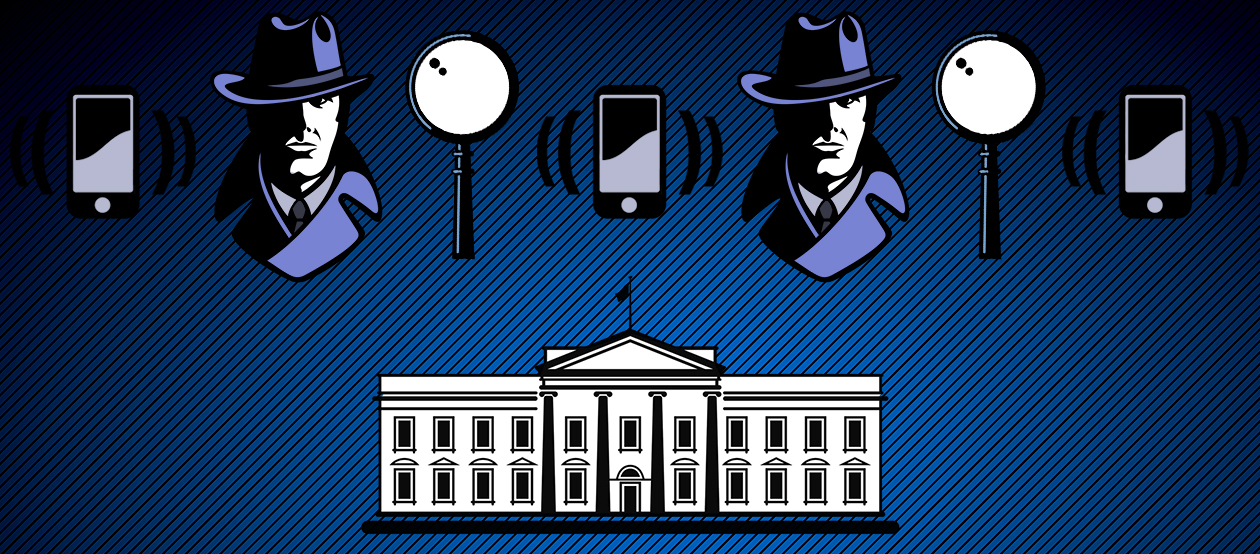The NSA's big problem, explained by the NSA


A free daily email with the biggest news stories of the day – and the best features from TheWeek.com
You are now subscribed
Your newsletter sign-up was successful
Amongst the new trove of classified documents released by Der Speigel is a rather academic discussion, in the NSA's own foreign affairs journal, about the differences between American signals intelligence collection and German signals intelligence collection.
One passage in particular stands out, as it highlights how the Germans give far more weight to privacy than the NSA does.
For the Germans, "...spam filters are used to process large data volumes. Selected traffic is passed through an automated privacy protection system, ensuring analysts cannot view German protected traffic. On-site BND analysts then manually assess all selected traffic to determine intelligence value." (BND refers to the German foreign intelligence agency, the Bundeshachrichtendienst.) It continues:
The Week
Escape your echo chamber. Get the facts behind the news, plus analysis from multiple perspectives.

Sign up for The Week's Free Newsletters
From our morning news briefing to a weekly Good News Newsletter, get the best of The Week delivered directly to your inbox.
From our morning news briefing to a weekly Good News Newsletter, get the best of The Week delivered directly to your inbox.
NSA analysts discussed NSA's "hunt versus gather" philosophy, our multi-stage selection and filtering process, and the evolution of DNI targeting systems from GRANDMASTER to WEALTHYCLUSTER, and in the future, TURMOIL. BND appeared especially interested in the TURMOIL approach of scanning and making judgments at the packet level prior to sessioning.
...NSA and BND use opposite selection and filtering approaches. Where NSA primarily relies on equipment for selection ... and analyst minimization for privacy protection, the BND relies on analysts to manually scan traffic for selection, and then equipment to filter data for privacy protection.
Full use of NSA DNI processing systems and technologies at the JSA will be key to influencing the BND to alter their strategic DNI approach.
Let me translate. The NSA has chosen the "gather" philosophy, which means they collect as much information as possible, from everywhere and anywhere, use sophisticated technology and analytics to figure out what's important automatically, determine targets and selectors by algorithms and metrics, and then, with the data that has "won" this Darwinian competition to get to the human analyst's desk, determines whether the target is legitimate.
A free daily email with the biggest news stories of the day – and the best features from TheWeek.com
BND, by contrast, employs privacy protection technology before raw intelligence reaches an analyst. The analyst is therefore only seeing the data cuts that do not meet pre-determined criteria for being screened out. In real terms, that means that the BND programs in a bunch of domestic German domain names and IP addresses into its system and asks the system to delete the "digital network information" — metadata and such — that matches them.
The NSA's cable taps do this a little bit. But the agency errs on the side of gathering information. It empowers (and obligates) the analyst herself to determine, using both her brain and other data, whether a selector, a target, is legitimate and foreign.
The BND approach, if adopted by the NSA, would probably reduce the number of so-called over-collects — where U.S. persons' information is inadvertently ingested and stored. The BND does not store the content that it deletes.
The NSA justifies its approach, generally, by pointing to the scope of its mission. It would be, the agency believes, far too time intensive to manually assess traffic for intelligence value. It is much easier to let computers see patterns and make matches — there is just so much damn data — and then "minimize" any domestic data that's collected. The NSA would also say that there is simply no other way to prosecute its mission.
I think the NSA might be correct. But I also see, from this assessment, that other countries have determined that the balance between collection and privacy can tip in the opposite direction and still be steady enough to get the job done.
Marc Ambinder is TheWeek.com's editor-at-large. He is the author, with D.B. Grady, of The Command and Deep State: Inside the Government Secrecy Industry. Marc is also a contributing editor for The Atlantic and GQ. Formerly, he served as White House correspondent for National Journal, chief political consultant for CBS News, and politics editor at The Atlantic. Marc is a 2001 graduate of Harvard. He is married to Michael Park, a corporate strategy consultant, and lives in Los Angeles.
-
 How the FCC’s ‘equal time’ rule works
How the FCC’s ‘equal time’ rule worksIn the Spotlight The law is at the heart of the Colbert-CBS conflict
-
 What is the endgame in the DHS shutdown?
What is the endgame in the DHS shutdown?Today’s Big Question Democrats want to rein in ICE’s immigration crackdown
-
 ‘Poor time management isn’t just an inconvenience’
‘Poor time management isn’t just an inconvenience’Instant Opinion Opinion, comment and editorials of the day
-
 The recycling crisis
The recycling crisisThe Explainer Much of the stuff Americans think they are "recycling" now ends up in landfills and incinerators. Why?
-
 The L.A. teachers strike, explained
The L.A. teachers strike, explainedThe Explainer Everything you need to know about the education crisis roiling the Los Angeles Unified School District
-
 The NSA knew about cellphone surveillance around the White House 6 years ago
The NSA knew about cellphone surveillance around the White House 6 years agoThe Explainer Here's what they did about it
-
 America's homelessness crisis
America's homelessness crisisThe Explainer The number of homeless people in the U.S. is rising for the first time in years. What’s behind the increase?
-
 The truth about America's illegal immigrants
The truth about America's illegal immigrantsThe Explainer America's illegal immigration controversy, explained
-
 Chicago in crisis
Chicago in crisisThe Explainer The "City of the Big Shoulders" is buckling under the weight of major racial, political, and economic burdens. Here's everything you need to know.
-
 The bad news about ISIS's defeat in Ramadi
The bad news about ISIS's defeat in RamadiThe Explainer The contours of a broader sectarian war are coming into focus
-
 America can still destroy the world
America can still destroy the worldThe Explainer The decline of U.S. military power has been greatly exaggerated
